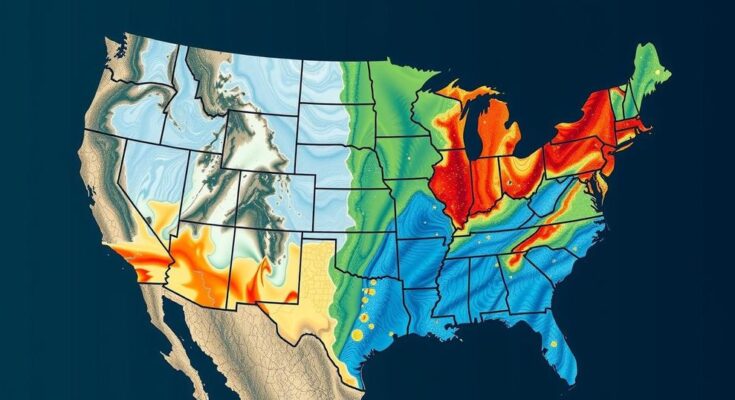The potential return of Donald Trump to the presidency may lead to another American exit from the Paris Agreement, raising concerns for the international community regarding the stability of climate commitments. The shifting political landscape poses significant implications for developing nations, who are already suffering the impacts of climate change and are skeptical of wealthy nations’ reliability in adhering to environmental agreements. The need for resilient climate action frameworks that can endure political volatility is urgent, as trust among nations hangs in the balance.
The oscillation of American climate policy has reached another pivotal moment as Donald Trump’s potential return to the presidency could lead to another exit from the Paris Agreement. This trend poses a significant risk not only to the U.S. standing in international climate negotiations but also threatens to disrupt the fragile consensus among nations committed to addressing climate change. Under President Barack Obama, the U.S. made a landmark commitment to the Paris Agreement in 2016, but the subsequent withdrawal by Trump demonstrated a concerning volatility in American climate policy. President Joe Biden’s reinstatement of the U.S. in 2021 aimed to rebuild credibility and confidence among global partners, yet the prospect of a Trump resurgence brings forth questions about reliability in climate commitments.
The implications for developing countries, particularly in the Global South, are profound. For nations already grappling with the harsh realities of climate change, such political fluctuations expose the inequity in climate action responsibilities. They are left questioning the fairness of binding emissions targets imposed upon them while wealthier nations seem able to discard environmental obligations when it becomes politically expedient.
In regions like West Africa, Southeast Asia, and Central America, citizens are acutely aware of climate change’s dire impacts, from flooding to droughts, while observing the American political landscape’s emotional rollercoaster. Should Trump’s leadership materialize, the upcoming COP30 may find itself severely challenged in instilling confidence among developing nations. The prospect of U.S. withdrawal may lead to a diminished trust in international agreements and reshape negotiating stances, as developing countries reconsider their commitments to emissions reductions amidst perceived double standards.
Compounding these concerns is the economic rationale often used to justify U.S. withdrawal — that climate deals harm American workers. This argument resonates poorly in the Global South, where immediate climate impacts are not theoretical but urgent realities affecting livelihoods and survival. As nations look to find resilience without reliance on potentially fickle U.S. support, China’s prominence in climate diplomacy may further rise, particularly as the landscape shifts with U.S. reversals.
The necessity for a robust framework capable of enduring political fluctuations becomes increasingly urgent. Advocating for decentralized cooperation involving cities, regions, and non-state actors may provide the resilience needed for sustained climate action. Furthermore, the intrinsic promise of the Paris Agreement—fostering collaborative and trustworthy international relationships—hangs in the balance, having already been weakened by past U.S. departures.
Ultimately, as asserted in the original discourse, the era of assuming unwavering Western climate leadership is over. The Global South cannot continue to depend on the unpredictable nature of affluent nations’ political agendas. The future of climate collaboration now must transition into a realm where adaptable yet reliable frameworks for international action can be established, reflecting a shifting reality in environmental governance and commitment that heedlessly changes with each electoral cycle.
The impending challenges underscore a pressing need for new strategies that bolster agency and resilience across nations in the face of an unwavering climate crisis. The fundamental question henceforth pertains not to the continuity of climate action, but rather the ingenuity and efficacy of its implementation amidst shifting political allegiances among leading world powers.
The current discussion surrounding American climate policy centers on its historical volatility and the potential implications for global climate efforts. This fluctuation, particularly between Trump and Biden administrations, has raised significant concerns among the international community, particularly developing nations who suffer the most from climate change impacts. With Trump’s possible return to power, there is a compounded anxiety that the trust and cooperative spirit established under the Paris Agreement may further erode, complicating efforts towards a unified climate response.
In summary, the intricate relationship between American political dynamics and global climate commitments reveals a concerning trend of instability that undermines the integrity of international agreements. Developing nations face the paradox of adhering to emissions targets while observing wealthier countries’ capricious commitments. As climate impacts worsen, the urgency for equitable, reliable, and effective climate action frameworks becomes paramount. The solution likely lies in innovative collaborative strategies that foster trust and accountability across nations, ensuring that the battle against climate change is a shared responsibility, independent of fluctuating political climates.
Original Source: www.ips-journal.eu




